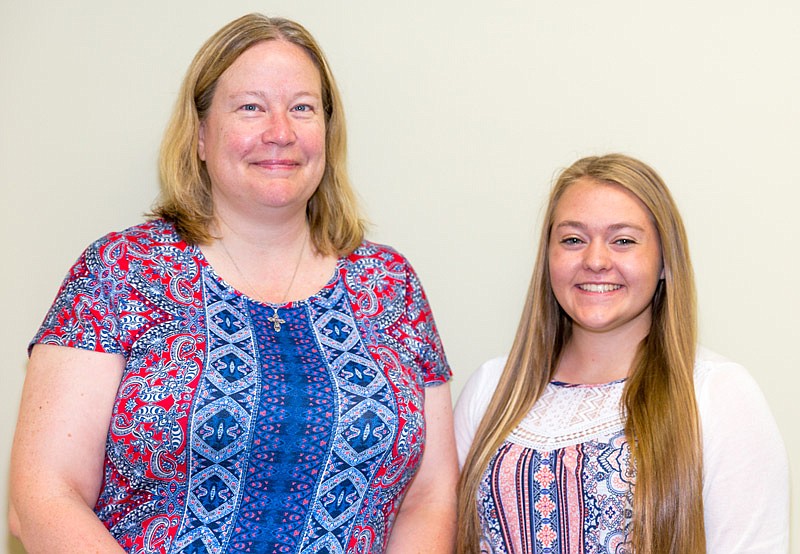Two students and as many teachers from Calvary Lutheran High School in Jefferson City are joining a group from Faith Lutheran Church on a week-long service trip to Nicaragua.
The group, which leaves today, will be working under the guidance of St. Louis-based Central American Lutheran Mission Society, or CALMS.
"I had a mission trip earlier this year, a couple weeks ago up in North Dakota," senior Amanda Braun said of her recent service work on Native American reservations, but today's departure marks her first time volunteering outside of the United States - and her first time flying.
People from the Calvary Lutheran community have gone on the Central American trip as members of Faith Lutheran in the past, but this year, students and staff at the high school were invited to come. A total of 11 people are going, group member Pat Martens said.
Martens said Faith Lutheran's group has gone to Guatemala since 2011, but with trip dates for that country booked up, this will be the first time for everybody in Nicaragua.
He's hopeful if enough interest is generated, Calvary Lutheran could make the Nicaragua trip something of its own.
In the meantime this year, he said the group will be working in Jinotega, a city of more than 50,000 people tucked in a river valley between steep hills, located a few hours' drive north of the country's capital of Managua. That's after a flight from St. Louis to Dallas, Texas, and then another to Managua.
The group will be conducting vacation Bible school for local children and building a house for a Nicaraguan family.
"I think I'm most looking forward to doing the VBS with the kids, because that's a really cool thing to get to spread the love of Christ with children," Braun said.
Her family's also building a house of their own right now, which she's helped work on, but admittedly, she said, "I don't do important things. I go get hammers."
Braun said her parents are generally pretty open to letting her branch out and do new things, but they were somewhat hesitant on letting their daughter go to Central America.
"I just told them how cool of an opportunity it was, and they were still a little bit iffy on it. But what really sold them was the other people that are going," she said of what reassured them.
Denise Crider, a Calvary Lutheran social studies and practical arts teacher of 13 years, is one of those other people.
"This has always kind of been one of those bucket-list things," Crider said.
A former Spanish teacher at Calvary Lutheran, Maritza Navarro, is from Nicaragua and told Crider about her home country.
"This is kind of an opportunity to follow up with," Crider said, though the group won't be going where Navarro's from.
"I am going to have more of an opportunity to serve, and to understand why I serve, whom I serve. I feel that this will give me the opportunity to better appreciate what I have and to be more thankful for what I have, and to understand that we all have the ability, as cheesy as it sounds, to make the world a better place," she said.
In particular, Crider said she thinks she'll be more appreciative of what's taken for granted in the U.S. - infrastructure and services like "electricity, hot water, educational opportunities, the ability to express one's faith; I don't know that there'll be one thing."
Nicaragua is the poorest country in Central America and the second poorest in the Western Hemisphere, with "widespread underemployment and poverty," according to the CIA's World Factbook. As of 2015, nearly 30 percent of the people in the country lived below the poverty line - about double that of the same overall rate in the U.S. as of 2010.
The U.S. State Department informs travelers that if it's available at all, emergency medical care outside of larger cities is basic.
Roads beyond major highways and urban areas are also hazardous, especially after dark, because of potholes, poor lighting, a lack of signs and narrow conditions without shoulders. Traffic police often shake down drivers for bribes in lieu of fines.
The Nicaraguan government is "authoritarian, limits freedom of expression and peaceful assembly, represses internal dissent and monitors and responds to perceived threats to authority," the State Department warns.
Like Braun, Crider is also looking forward seeing the house under construction get finished, and the reactions of their vacation Bible school students. "As a teacher, when you see that click, you can tell when that light bulb is going off," that's rewarding, she said of evangelizing.
"God's put me in this place where I can go, spread his word and get to have these amazing opportunities to actually go out of country. I just think it's so cool that I'm in this place where I'm able to do that," Braun said.
Calvary Lutheran student Abigail Lieb and her mom, Trina, who is also a teacher at the school, are also going on the trip.

